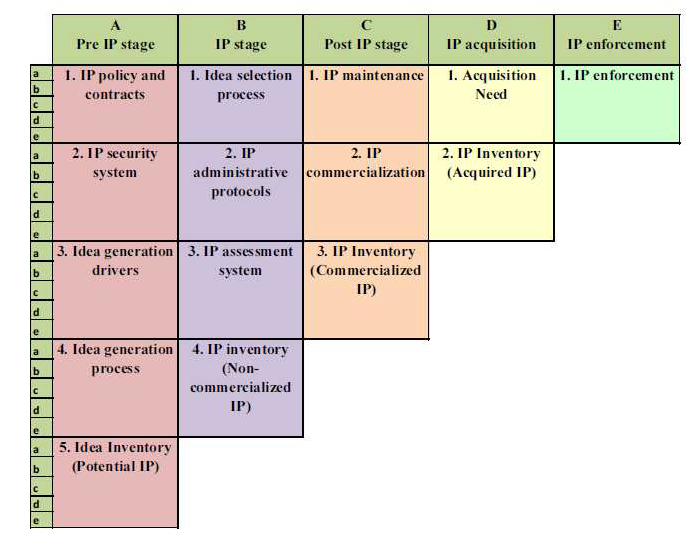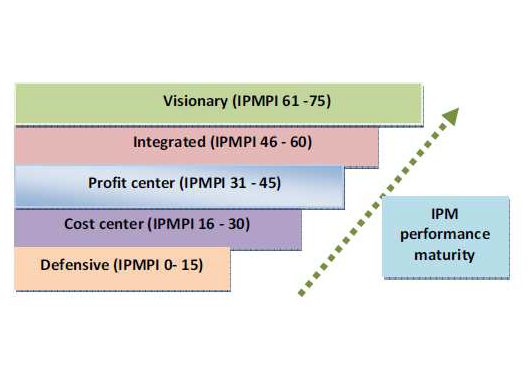The invention is an Intellectual Property Management System (IPMS) designed to enhance the efficiency of IP management within organizations. It integrates a network-based system that includes a server, database, user input device, access portal, and calculation unit to estimate the Intellectual Property Management Performance Index (IPMPI). The system provides an automated process for IPM performance evaluation, generating comprehensive reports and analytics to aid decision-making in IP management.
The inefficient management of Intellectual Property (IP), particularly within micro, small, and medium enterprises, as well as research and higher education institutes, poses a significant challenge to an entity. Current IP management solutions are either limited or exorbitantly priced, leading to a significant gap between IP generation and commercialization.
- Automated IPM performance evaluation: The system automates the calculation of the IPMPI, reducing manual effort and increasing accuracy.
- Comprehensive IPM audit tool: The IPM audit tool offers a detailed assessment across five stages (pre-IP, IP, post-IP, IP acquisition, IP enforcement), ensuring thorough evaluation.
- Scalability: The system can be adapted for use at individual, organizational, industrial, sector, and country levels.
- User-friendly interface: The system includes an intuitive user interface and access portal, making it accessible for non-experts.
- Integrated data management: Efficient data management tools, including electronic laboratory notebooks and secure data storage, ensure data integrity and accessibility.
- Customizable matrices and models: The system supports the design of various matrices, models, and tools tailored to specific IP and innovation management activities.
The prototype of the IPMS includes a server connected to a centralized database, user input devices, an access portal for IP management, and a calculation unit for IPMPI estimation. The system has been tested and validated through detailed case studies and interactions with IP professionals, demonstrating its capability to accurately assess IPM performance levels.
The Intellectual Property Management System (IPMS) is at the prototype stage, having been tested and validated through case studies and interactions with IP professionals. It has shown effectiveness in assessing IP management performance and supporting IP-related activities, ready for further refinement and broader application.
The implementation of this IPMS has the potential to significantly enhance the efficiency of IP management across various sectors, leading to increased commercialization of intellectual property. This, in turn, can drive economic growth, foster innovation, and improve the strategic management of intellectual assets. By making IP management more accessible and affordable, the system supports the development of a more robust IP ecosystem, particularly benefiting organizations in developing countries.
- Research institutes: Supports efficient management and commercialization of research-generated IP assets
- Higher educational institutes: Facilitates documentation, protection, and transfer of academic research outputs
- Industrial organizations: Enhances IP strategy alignment with business goals and streamlines IP processes
- Micro, Small, and Medium Enterprises (MSMEs): Provides affordable IP management solutions to protect and leverage innovations
- Technology development and innovation management: Manages the lifecycle of innovations, from ideation to commercialization, to drive growth and competitiveness
Geography of IP
Type of IP
1118/MUM/2015
492476


